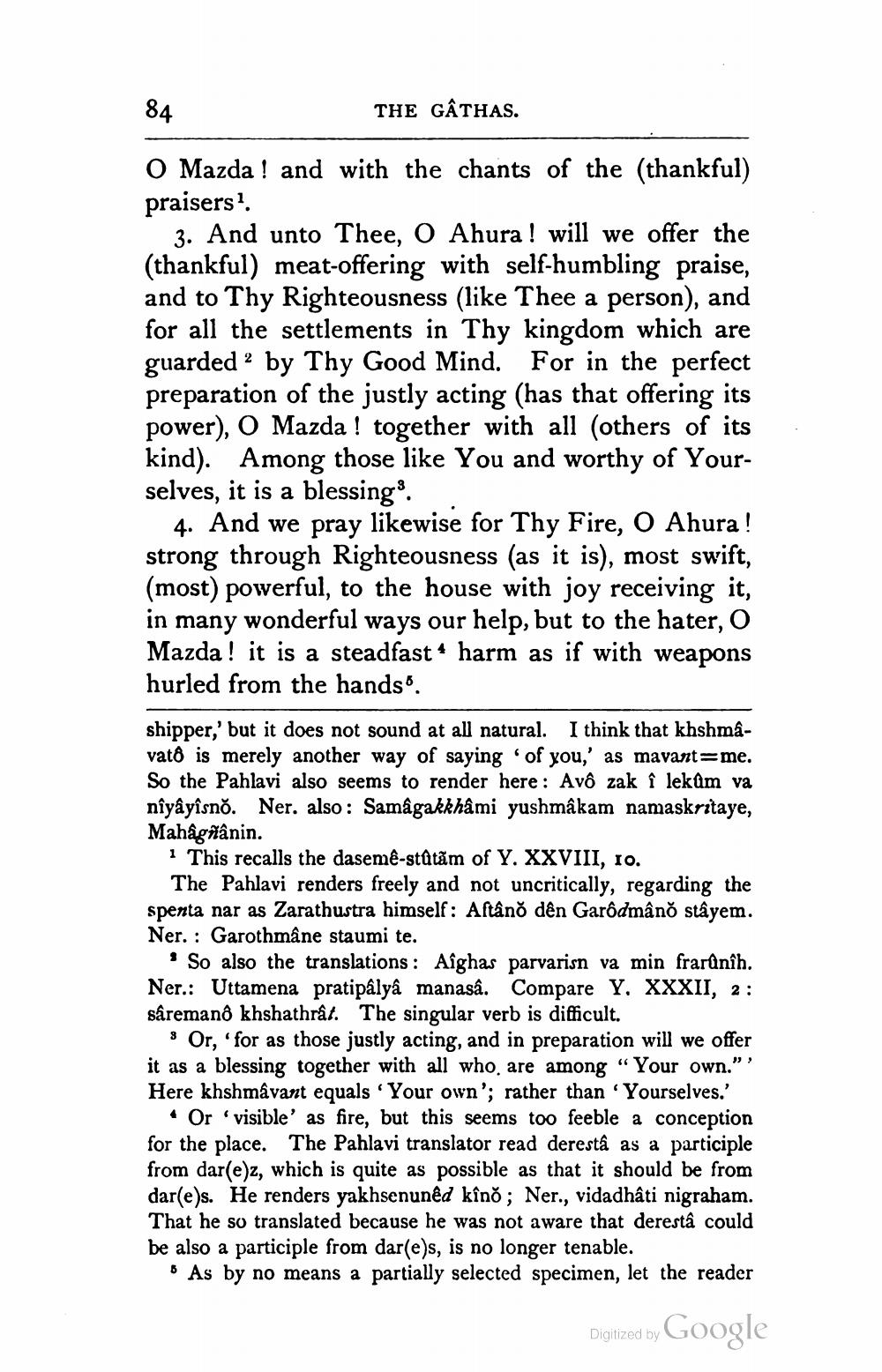________________
THE GÂTHAS.
O Mazda ! and with the chants of the (thankful) praisers?.
3. And unto Thee, O Ahura! will we offer the (thankful) meat-offering with self-humbling praise, and to Thy Righteousness (like Thee a person), and for all the settlements in Thy kingdom which are guarded 2 by Thy Good Mind. For in the perfect preparation of the justly acting (has that offering its power), O Mazda ! together with all (others of its kind). Among those like You and worthy of Yourselves, it is a blessing .
4. And we pray likewise for Thy Fire, O Ahura! strong through Righteousness (as it is), most swift, (most powerful, to the house with joy receiving it, in many wonderful ways our help, but to the hater, O Mazda! it is a steadfast harm as if with weapons hurled from the hands.
shipper,' but it does not sound at all natural. I think that khshmavató is merely another way of saying of you,' as mavant=me. So the Pahlavi also seems to render here: Avô zak i lekum va nîyayîsno. Ner. also: Samâgakkhâmi yushmâkam namaskritaye, Mahagñânin.
1 This recalls the daseme-stûtãm of Y. XXVIII, 10.
The Pahlavi renders freely and not uncritically, regarding the spenta nar as Zarathustra himself: Aftânð dên Garôdmânð stâyem. Ner. : Garothmâne staumi te.
So also the translations: Aighas parvarisn va min frarûnîh. Ner.: Uttamena pratipálya manasa. Compare Y, XXXII, 2: sâremanó khshathrât. The singular verb is difficult.
8 Or, 'for as those justly acting, and in preparation will we offer it as a blessing together with all who are among “Your own."? Here khshmâvant equals 'Your own'; rather than Yourselves.'
• Or visible' as fire, but this seems too feeble a conception for the place. The Pahlavi translator read derestâ as a participle from dar(e)z, which is quite as possible as that it should be from dar(e)s. He renders yakhsenunêd kîno; Ner., vidadhâti nigraham. That he so translated because he was not aware that derestã could be also a participle from dar(e)s, is no longer tenable.
6 As by no means a partially selected specimen, let the reader
Digitized by Google




